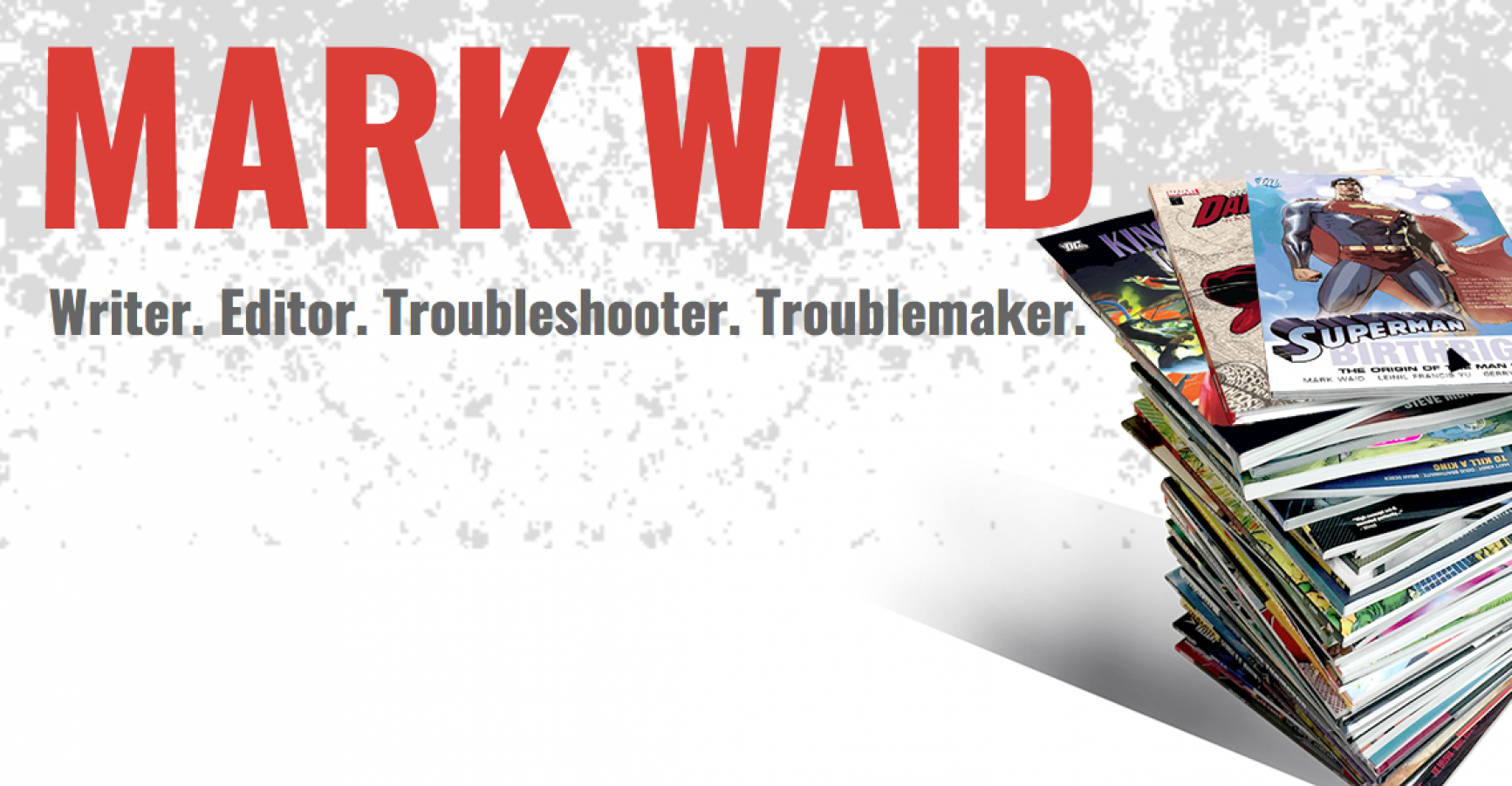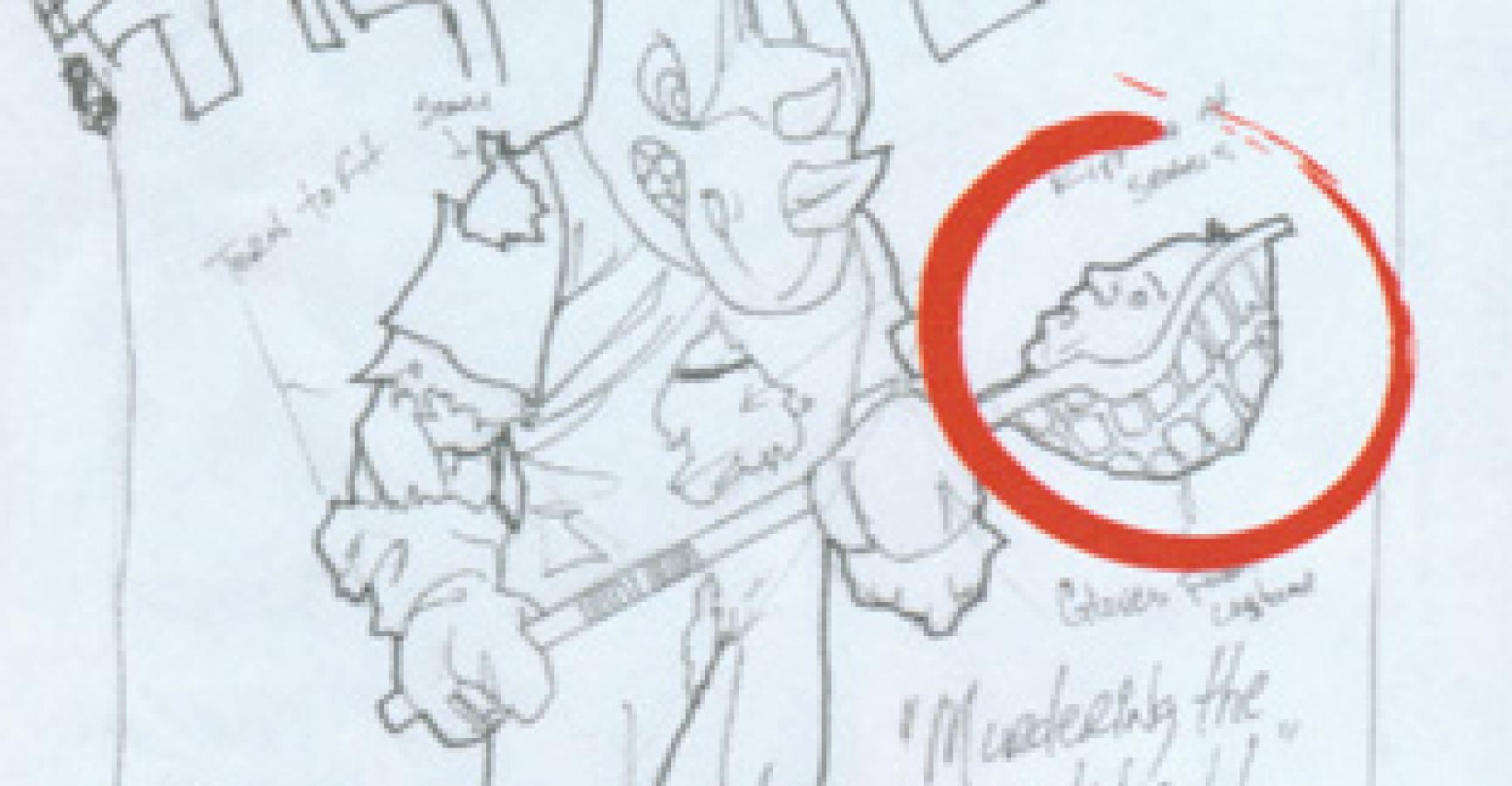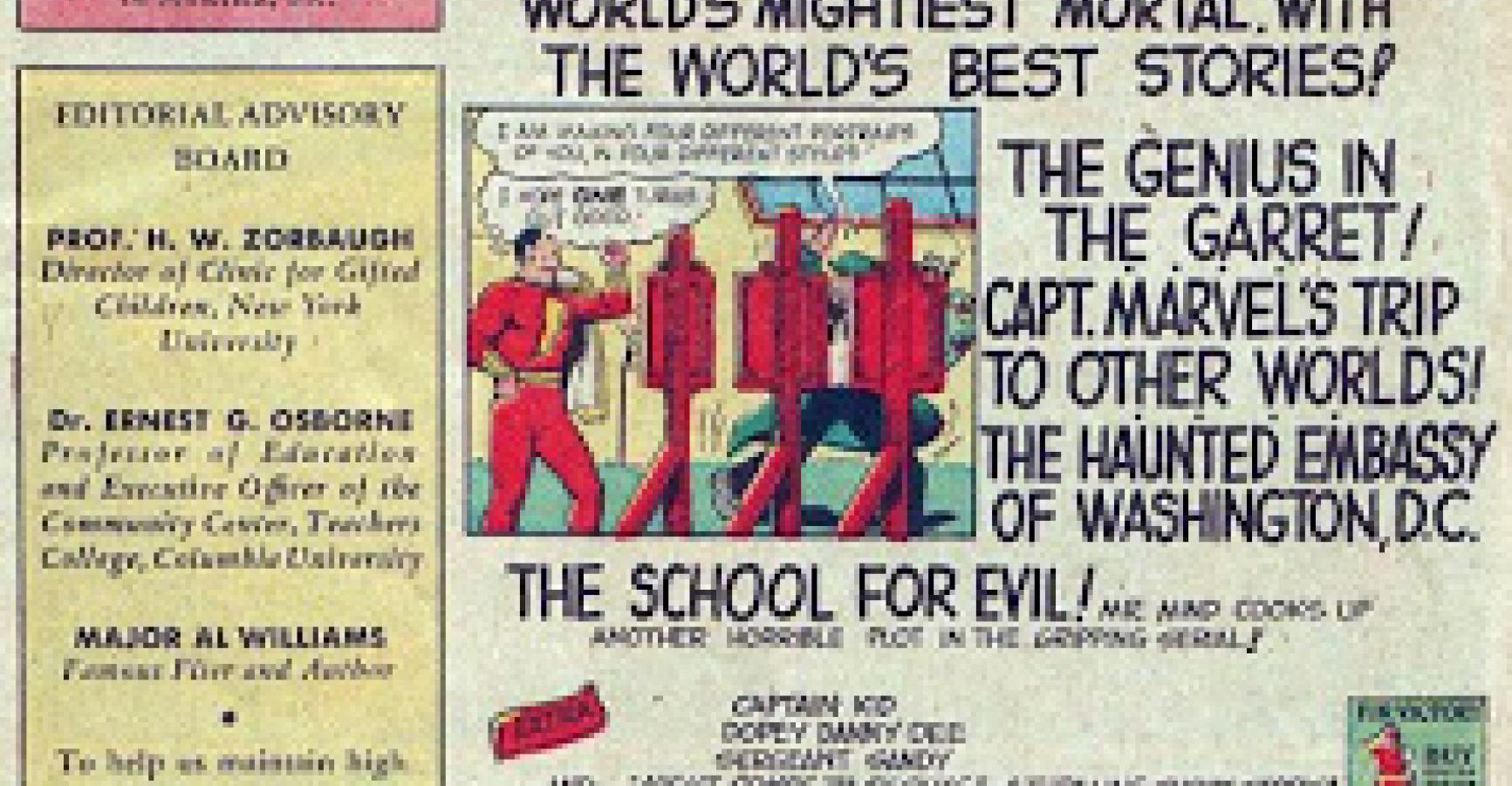There used to be a Triangle Rule in comics. I first heard it from one of my mentors, the brilliant writer/cartoonist William Messner-Loebs. I’ve repeated it many times since, and God only knows who first articulated it, but it supposed this:
There were three qualifications for making good in comics–talent, personality, and the ability to hit a deadline. That was your triangle. The theory was that very few comics professionals wer gifted with all three of these super-powers, but as long as s/he possessed any two of these traits, steady work was all but a lock. If you were insanely talented and likeable, you could probably skate by for a while on the punctuality hurdle; there was a point where Neil Gaiman was so overwhelmed that he was faxing Sandman scripts in one page at a time, which he could get away with ’cause he was Neil Gaiman. Likewise, comics was crammed to the rafters with C-level-talent drinking buddies who were unbelievably reliable about getting their scripts or art in on time, and clockwork geniuses who had the social skills of a filing cabinet, and they all got by–maybe not on the A-list assignments, but they put food on their table.
Before you whoop up and down that you’ve just snagged a career because you’re two for three–you’re always punctual and your friends tell you you’re a hoot–I warn you that the 21st Century has not been kind to the Triangle Rule. First off, FTPs and e-mail have become such a part of the work-delivery process that human interaction and visits to the office to get face-time with your editor are rarer than ever, so your winning personality counts less. Secondly, yes, we’re still in the periodical business–even with one-off graphic novels, someone somewhere is depending on you to make an eventual deadline, even if it’s just your landlord–so missing a deadline is never, ever cool, but so long as you stay in contact with your editor and keep the lines of communication open rather than ignore phone calls or e-mails, you can probably work something out. (Just remember, it is a thousand times more forgiveable to blow a deadline if you alert the editor ahead of time that you’re having trouble than it is to drop off the radar and leave the editor hanging.)
But most importantly, there are very few places in comics these days to build your career and quietly hone your skills, so it’s not enough to be talented. You have to be talented right now, out of the gate. Part of that’s because a bunch of jerks like Grant Morrison, Darwyn Cooke and Ed Brubaker went and drastically raised the bar on the definition of the word “talented.” Part of that’s because readers expect way more from a comic that costs twice what it cost six years ago. Part of that is because, chances are, your work will be collected in a trade paperback that will stay in print a long, long time. And part of that is because there now are far, far more comics reviews sites online than there are people who actually love comics and are not willing to snark your reputation to a bloody pulp just because snark is easier to write than actual criticism.
Wait, it gets worse. You have to be talented right now, and you have to sustain that talent. Not only is competition for the gig is at an all-time high, but the economy isn’t exactly encouraging readers to be patient with comics they might grow to love. Sorry to add to the pressure, but one or two bad jobs can take a fast toll on your career.
Mark Waid the BOOM! Editor-In-Chief just wrote 400 words on how meeting deadlines was your most important reputation-builder, and he wants to scream bloody murder at Mark Waid the Freelancer for throwing them out in lieu of what I’m about to say–because no one else says it, ever–but while you don’t want to be a prima donna with your attitude and you don’t want to get fired for never delivering on time, the God’s honest truth is that, in the long run, the quality of your work is all that matters.
Long, long ago, when I was a Boy Editor at DC, I once asked my boss, Dick Giordano, about what it was like to work with Neal Adams, who he’d long been partners with and who had a legendary reputation (earned or not) for never, ever, ever, ever meeting a deadline. “Didn’t editors lose their minds when Neal would do his disappearing act?”, I asked. Dick just chuckled and said, “Yes. Yes, they did. And they’d be furious with him, and they’d swear never to hire him again. But six months later, they wouldn’t remember how late his work was. All they’d remember was how good it was.”
This was, frankly, kind of a dangerously stupid thing to tell an impressionable young editor working in the periodical business…but (a) Dick’s gift for candor was one of the qualities that made him the best and most valuable mentor I ever had, and (b) he was right. And he’s just gotten more right in the intervening two decades. I cannot name names without embarrassing them, but I can just off the top of my head think of at least a dozen freelancers who hit every deadline ever asked of them, even if that deadline was changed on them without fair warning… who were pleasant to work with and always professional even if their editor was a jerk…and who always did exactly what their editors asked them to do, even if it was obvious to a blind man that the quality of the finished work was lessened, because they were trained to believe that their first priority was to serve their editor and do so in a timely manner.
All of those people have been unemployed for years.
In the long run, the quality of your work is all that matters. That is your only resumé. Be professional. Make sure your editor or publisher can always reach you. Do what’s asked of you if your conscience can bear it. But know that, five years from now, as fans or prospective employers are looking over your published pages, no one will care that this story sucks because the publisher moved the deadline up or because the editor made you work an android cow into the story. All they will care about is what they see in front of them, and they will hold you responsible for it, no one else.
Don’t be defiant. Don’t be difficult. But the Triangle Rule no longer holds, so most of all, don’t think that if you simply jump through enough hoops and fetch enough drinks, that’ll still buy you a career. Be good at this above all else. Stand up for your work, and never, ever let anything get in the way of you doing your very best. You may end up crossing swords with an editor and leave him or her thinking you’re difficult or unhireable. That editor may even be me. But if you never listen to another thing I ever say, listen to this: the Career Graveyard is fence-to-fence full and three deep with freelancers who believed that making a positive impression with their editors was more important than making a permanent impression with their work.



